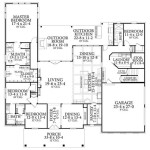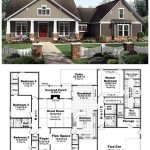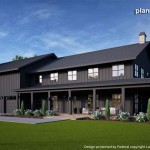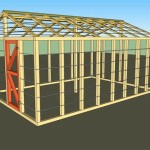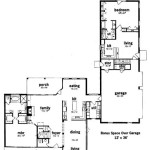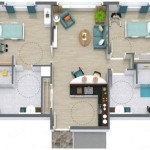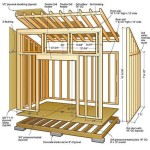A custom house plan is a detailed blueprint that outlines the design and construction specifications of a unique, one-of-a-kind home. Unlike pre-designed house plans, custom plans are tailored to the specific needs, preferences, and lifestyle of the homeowner. For instance, a family with a large extended family may opt for a custom plan that includes a spacious living area and multiple bedrooms, ensuring ample space for gatherings and privacy.
Custom house plans offer several advantages. They allow homeowners to have complete control over the design of their home, ensuring that it perfectly reflects their taste and personality. Additionally, custom plans can be tailored to specific site conditions, such as the topography of the land or the orientation of the sun. This results in a home that is both aesthetically pleasing and functional, maximizing the potential of the property.
In the following sections, we will delve deeper into the benefits of custom house plans, explore the process of creating one, and discuss the key elements to consider when designing your dream home.
Custom house plans offer numerous advantages, including:
- Unique design
- Tailored to needs
- Site-specific design
- Increased functionality
- Higher resale value
- Energy efficiency
- Personalization
- Investment potential
Custom house plans allow homeowners to create a home that is truly their own, while also maximizing the potential of their property and increasing the value of their investment.
Unique design
One of the primary advantages of a custom house plan is the ability to create a home that is truly unique and reflects the homeowner’s individual style and personality. Unlike pre-designed plans, which are often used to build multiple homes, custom plans are tailored to the specific needs and preferences of the homeowner, resulting in a one-of-a-kind residence.
With a custom house plan, homeowners have complete control over every aspect of their home’s design, from the overall layout and architectural style to the smallest details, such as the type of windows, doors, and fixtures. This level of customization allows homeowners to create a home that perfectly suits their lifestyle, taste, and aspirations.
Additionally, custom house plans can be designed to accommodate specific hobbies or interests. For example, an avid gardener may opt for a plan that includes a greenhouse or a dedicated gardening space, while a music lover may incorporate a soundproof music room into their home’s design.
The possibilities are endless when it comes to creating a unique design with a custom house plan. Homeowners can work with their architect to explore different design options and find solutions that meet their specific needs and desires.
The unique design of a custom house plan not only enhances the aesthetic appeal of the home but also contributes to its functionality and livability. A well-designed custom home is tailored to the specific needs of the homeowner, ensuring that the spaces flow seamlessly and that the home functions efficiently.
Tailored to needs
Another significant advantage of custom house plans is their ability to be tailored to the specific needs and requirements of the homeowner. Unlike pre-designed plans, which are often designed for a general audience, custom plans are created to meet the unique lifestyle, preferences, and budget of the individual homeowner.
- Family size and composition: Custom house plans can be designed to accommodate families of all sizes and compositions. For example, a family with young children may opt for a plan that includes a dedicated playroom and multiple bedrooms, while an empty nester couple may prefer a plan with a more open and spacious layout.
- Lifestyle and hobbies: Custom house plans can be tailored to suit the specific lifestyle and hobbies of the homeowner. For instance, an avid cook may request a plan that includes a large kitchen with a professional-grade stove and oven, while a fitness enthusiast may incorporate a home gym into their design.
- Accessibility and universal design: Custom house plans can be designed to meet the needs of individuals with disabilities or those who prefer universal design features. For example, the plan can include wider doorways, ramps, and accessible bathrooms to ensure that the home is comfortable and safe for all occupants.
- Budget and financial constraints: Custom house plans can be tailored to fit the budget and financial constraints of the homeowner. The architect will work with the homeowner to explore different design options and find solutions that meet their specific needs and budget.
By tailoring the house plan to the specific needs of the homeowner, custom house plans ensure that the resulting home is not only aesthetically pleasing but also highly functional and comfortable for the occupants.
Site-specific design
Custom house plans offer the unique advantage of being designed specifically for the site on which the home will be built. This site-specific design approach takes into account the unique characteristics of the property, such as its topography, orientation, and surrounding environment, to create a home that is both aesthetically pleasing and functional.
One of the primary benefits of site-specific design is that it allows the architect to optimize the home’s orientation to take advantage of natural light and passive solar heating. By carefully positioning the home on the lot, the architect can maximize the amount of natural light that enters the home, reducing the need for artificial lighting and lowering energy costs. Additionally, the home can be designed to take advantage of prevailing breezes, promoting natural ventilation and reducing the need for air conditioning.
Site-specific design also considers the topography of the land. By working with the natural contours of the site, the architect can create a home that blends seamlessly into the surrounding landscape. This approach not only enhances the aesthetic appeal of the home but also minimizes the need for extensive grading and excavation, reducing construction costs and environmental impact.
Furthermore, site-specific design takes into account the surrounding environment, including vegetation, wildlife, and views. The architect can work with the homeowner to identify the most desirable views and design the home to maximize these views while also preserving the natural beauty of the site. By carefully considering the surrounding environment, the architect can create a home that is both visually appealing and respectful of its surroundings.
Site-specific design is an essential aspect of custom house plans, as it ensures that the home is not only tailored to the needs of the homeowner but also harmoniously integrated into its surroundings. By taking into account the unique characteristics of the property, the architect can create a home that is both functional and aesthetically pleasing, maximizing the potential of the site and enhancing the overall livability of the home.
Increased functionality
Custom house plans offer increased functionality compared to pre-designed plans due to their ability to be tailored to the specific needs and lifestyle of the homeowner. By working closely with the homeowner, the architect can design a home that not only meets the homeowner’s aesthetic preferences but also optimizes functionality and efficiency.
- Optimized storage and organization: Custom house plans can be designed to include ample storage space throughout the home, ensuring that every item has a designated place. This not only keeps the home organized and clutter-free but also improves the overall functionality and livability of the home.
- Efficient use of space: Custom house plans can be designed to make the most efficient use of the available space, maximizing the functionality of each room and minimizing wasted space. The architect can carefully consider the flow of traffic and the placement of furniture and fixtures to create a home that is both spacious and efficient.
- Integration of technology: Custom house plans can be designed to seamlessly integrate technology into the home, enhancing convenience and functionality. This may include features such as smart home systems, automated lighting, and built-in entertainment systems.
- Customization for specific needs: Custom house plans can be tailored to meet the specific needs of the homeowner, regardless of their age, abilities, or lifestyle. For example, the plan can include features such as wider doorways, ramps, and accessible bathrooms to ensure that the home is comfortable and safe for all occupants.
The increased functionality of custom house plans translates into a home that is not only beautiful but also highly livable and efficient. By carefully considering the homeowner’s needs and lifestyle, the architect can create a home that is tailored to their unique requirements, enhancing their overall quality of life.
Higher resale value
Custom house plans often result in homes with higher resale value compared to homes built with pre-designed plans. This is because custom homes are unique and tailored to the specific needs and preferences of the homeowner, which makes them more desirable to potential buyers.
One of the key factors that contribute to the higher resale value of custom homes is their increased functionality and efficiency. Custom plans allow homeowners to optimize the use of space, create efficient floor plans, and integrate smart home features, all of which enhance the overall livability and appeal of the home.
Additionally, custom homes often incorporate high-quality materials and finishes, which not only enhance the aesthetic appeal of the home but also increase its durability and longevity. Potential buyers are willing to pay a premium for homes that are built to last and require less maintenance.
Another factor that contributes to the higher resale value of custom homes is their uniqueness. Custom homes stand out from the crowd, which makes them more desirable to buyers who are looking for a home that reflects their individual style and taste. In a competitive real estate market, unique and well-designed homes are often in high demand and can command a higher price.
Overall, the higher resale value of custom homes is a testament to their superior quality, functionality, and uniqueness. By investing in a custom house plan, homeowners can create a home that not only meets their current needs but also has the potential to increase in value over time.
Energy efficiency
Custom house plans offer significant advantages in terms of energy efficiency, resulting in lower energy costs and a more sustainable home.
- Optimized building envelope: Custom house plans allow for careful consideration of the building envelope, which includes the walls, roof, windows, and doors. The architect can specify high-performance insulation, energy-efficient windows, and an airtight building envelope to minimize heat loss and gain.
- Passive solar design: Custom house plans can be designed to take advantage of passive solar energy. By carefully orienting the home on the lot and incorporating large windows on the south-facing side, the architect can maximize the amount of natural light and heat that enters the home, reducing the need for artificial lighting and heating.
- Energy-efficient systems: Custom house plans can be designed to incorporate energy-efficient systems, such as high-efficiency heating and cooling systems, ENERGY STAR appliances, and LED lighting. These systems consume less energy, resulting in lower utility bills and a reduced carbon footprint.
- Renewable energy integration: Custom house plans can be designed to integrate renewable energy sources, such as solar panels and geothermal systems. These systems can generate clean, renewable energy, further reducing the home’s reliance on fossil fuels and lowering energy costs.
By implementing these energy-efficient features, custom house plans not only create more comfortable and sustainable homes but also help homeowners save money on energy bills and reduce their environmental impact.
Personalization
Custom house plans offer unparalleled opportunities for personalization, allowing homeowners to create a home that truly reflects their unique style, preferences, and aspirations.
- Tailored to specific needs and lifestyle: Custom house plans are tailored to meet the specific needs and lifestyle of the homeowner. The architect works closely with the homeowner to understand their daily routines, hobbies, and personal preferences, and incorporates these into the design of the home. This results in a home that is not only beautiful but also highly functional and comfortable for the occupants.
- Expression of personal style and taste: Custom house plans provide homeowners with the freedom to express their personal style and taste in every aspect of their home’s design. From the architectural style to the interior finishes and dcor, homeowners can make every detail their own, creating a home that is a true reflection of their personality and values.
- Incorporation of personal interests and hobbies: Custom house plans can be designed to incorporate personal interests and hobbies. For example, an avid gardener may opt for a plan that includes a dedicated greenhouse or a spacious outdoor gardening area. A music lover may request a soundproof music room or a home theater. The possibilities are endless when it comes to personalizing a custom house plan to suit the homeowner’s unique interests.
- Sentimental and emotional value: Custom house plans often hold sentimental and emotional value for homeowners, as they are deeply involved in the design process and have the opportunity to create a home that is truly their own. This personal connection to the home enhances the homeowner’s sense of belonging and makes the home a cherished place to live.
The ability to personalize a custom house plan is one of its most significant advantages. By working with an architect, homeowners can create a home that is not only visually appealing but also highly functional, comfortable, and reflective of their unique identity.
Investment potential
Custom house plans offer significant investment potential due to their ability to create homes that are not only beautiful and functional but also highly desirable in the real estate market. Homes built with custom plans often command a higher resale value compared to those built with pre-designed plans, providing a potential return on investment for homeowners.
One of the key reasons for the higher resale value of custom homes is their uniqueness. Custom homes stand out from the crowd, which makes them more desirable to potential buyers who are looking for a home that reflects their individual style and taste. In a competitive real estate market, unique and well-designed homes are often in high demand and can command a higher price.
Another factor that contributes to the investment potential of custom homes is their superior quality and durability. Custom homes are often built with higher-quality materials and finishes, which not only enhance the aesthetic appeal of the home but also increase its longevity and reduce maintenance costs. Potential buyers are willing to pay a premium for homes that are built to last and require less maintenance.
Furthermore, custom homes often incorporate energy-efficient features and sustainable design principles. These features not only reduce energy costs for homeowners but also make the home more attractive to environmentally conscious buyers. In today’s market, energy efficiency and sustainability are becoming increasingly important factors for homebuyers, and custom homes that prioritize these aspects have a higher likelihood of attracting potential buyers and commanding a higher resale value.
Overall, the investment potential of custom house plans is significant. By investing in a well-designed and well-built custom home, homeowners can create a valuable asset that not only meets their current needs but also has the potential to increase in value over time.


![]()







Related Posts


